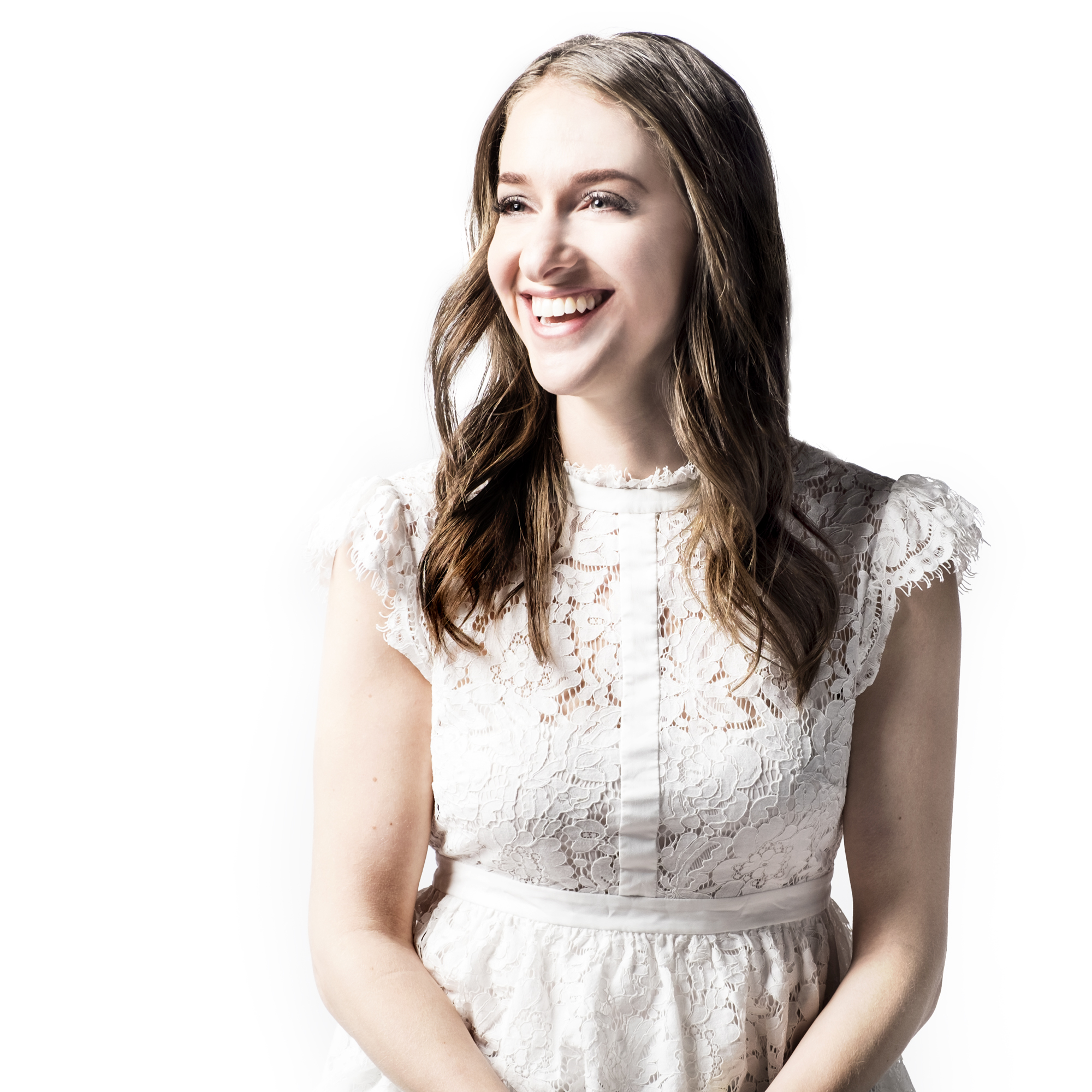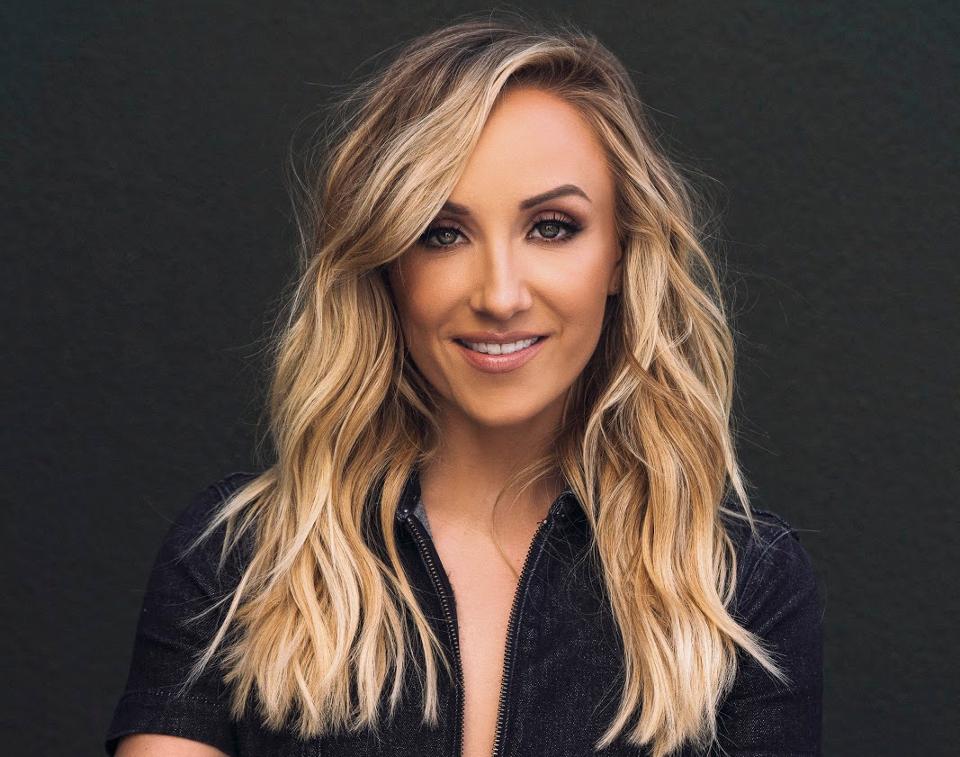What does it look like to dream a big dream? And then, to achieve it at the tender age of eighteen, and be faced with the reality of dreaming again?
This was 5-Time Olympic Medalist Nastia Liukin’s reality. After taking home the gold medal for the All-Around event at the 2008 Beijing Games and then retiring from gymnastics at the ripe age of twenty-two, Nastia set out to make her mark on the gymnastics world (and beyond) in other ways. She has since started a tech platform to empower the next generation of female athletes by connecting them to their mentors, sports psychologists, nutritionists, college recruiters, and her Olympic peers. Using the loyal fan base she has cultivated over the last decade, Liukin has launched her influencer business, which has led to collaborations with some of the world’s leading brands.
But what did that journey look like behind what we see in her glossy Instagram photos? And what can we learn from her experiences?
She and I sat down to discuss everything from dreaming again, to failure, starting her company, and personal fulfillment. Check it out:
On finding her passion
“Going back to my childhood, it was about finding something that I loved and was passionate about. I think a lot of people forget to do that and it’s the most important part. Whether it’s a sport, a job, or starting a new business, you have to be passionate about it, or it’s really hard if you’re not. I was so lucky that I found that right away, and I never looked back.”
On winning against the odds
“My entire career, I wasn’t the standard gymnast type. I was taller, lankier, skinnier, didn’t really have the muscle or the quickness or the speed or the power that you’re really supposed to have. Yet I became an Olympic all-around gold medalist. A lot of odds were against me going in to the Olympics, and I wasn’t the favorite to win. But those lessons taught me so much.”
On picking yourself up when you’re literally flat on your face
“The situation was even more so when I tried to make my second Olympic team in 2012. I was now going in as a reigning Olympic all-around champion, so there was much more pressure and many more expectations on me. I proceeded to fall off the bars face first. I remember that moment, thinking to myself first of all, ‘Why am I down here?’ Quickly, my thoughts changed to, ‘Oh my God, I’m so embarrassed and mortified and ashamed! I’ve just disappointed so many people.’ And I got back up, finished my routine, and landed my dismount on my feet.
And then, you know what? For the first time in my career, I received a standing ovation. And it was for the worst routine of my career! In that moment, I remember being very confused. Up until that moment, I always thought that people were going to love or support me only if I were the best, if I won the gold medal, if I made the Olympic team. I realized in that moment that that’s not what life is about. More importantly, I realized how this lesson can translate to real life: to businesses, to entrepreneurs, to people in their jobs. So often, we feel as if we’re defined by a job title, or a salary, or what company we work at; and that’s just not what life is about.”
On gymnastics paving her entrepreneurial path
“So many of my gymnastics experiences have paved this way into my business life. Knowing that things aren’t always going to go your way, and that you’re not always going to know what you’re doing.”
On making decisions for yourself
“It’s so important to do something for yourself, and not necessarily to prove something to other people. Whether it’s trying to prove something to your old boss, or trying to prove to your mom who says, ‘There’s no way you can do it.’ Or ‘You don’t know what you’re doing.’ So many more times than not, we’re trying to prove it to somebody else instead of asking, ‘What are my goals? Why am I doing this?”
On dreaming new dreams
“It was scary; I had achieved my ‘lifelong dream’ at eighteen years old. Little did I know, but I had the rest of my life to live and achieve other things. But in the moment it was such a strange position in which to be, feeling so accomplished and so happy, but then being so scared. And literally standing on that podium, crying tears of excitement but then also thinking, ‘Whoa. Now what?’ It’s such a hard feeling to explain. So, I went through that for a few years of, ‘I don’t know what to do now. I don’t know what my passions are.’ I started training again, and then tried to make my second Olympic team. But so much more so after that second time, I thought, “Now I know that I’m done competing, but I have to figure out what my passions are and what my goals are now.’ This is scary because I had always felt that for so many years gymnastics defined who I was as a person.
On being more than a gymnast
“And I have now realized that gymnastics, or a sport, or a job doesn’t define who we are. It’s just something we do. So, as opposed to saying, ‘I’m the gymnast’ it’s more so, ‘I did gymnastics.’ It’s also a mental challenge, too, of figuring out and telling yourself, ‘I’m not defined by that. It’s just something I did. Put a check by it and move on.’ I never want to look back at my life and think that was the only thing and only goal and dream that I was able to accomplish.”

On fulfillment
“I literally remember, word for word, going to sleep every night before the Olympics thinking, ‘I’ll just be so happy when I win the Olympics, I’m going to be fulfilled.” And then, against all odds, it happened. When it actually happened, I realized, ‘Wait, my happiness isn’t defined by that medal. I’m not defined by that medal.’ It’s hard to understand at eighteen. It’s hard to understand at any age. No matter how old you are, no matter how accomplished you are in one thing or another, it’s really hard to grasp that. And so that’s why your inner happiness is also extremely important outside of your job or company. And that’s what I’ve really been trying to focus on.”
On finding balance
“I was not good at balancing my work life, my personal life, my family, and my relationships. If you spend too much time doing something, that other things take a beating, and vice-versa. I understand that when you’re starting a new business, you don’t have a team of employees working for you to whom you can delegate. You’re doing it all, and the success of that company is in your hands.
On starting her company
“I remember talking about this idea with my dad, who was my coach and toughest critic. He said, ‘This would have been incredible if you had this when you were a gymnast.’ And when he said that I thought, ‘Wow, okay. He gets it.’ My upbringing wasn’t exactly like every other gymnast. Both of my parents were World and Olympic champions. Because of that, I had access to other gymnasts and coaches and to my idols. I would walk into my house and one of my idols would be sitting on my couch. I know that wasn’t normal, so I wanted to be able to recreate a little bit of that connection for those people who didn’t have that opportunity. So that was the main idea. Over the years, I’ve done so many meet and greets, sitting behind a table going through an autograph line. I’d see these young girls and young women come through, and they’re all craving a little bit more than a signed piece of paper. If they could just ask me one question, I could share something with them. And I would feel more fulfilled than handing a piece of paper. And so I kept thinking, ‘What is it that I can do?’ And that’s where the idea started.”
On the hard times
“I would have thought that this world is not right if everything came easily. Just like the Olympics, that didn’t come easily, and I wasn’t expecting this to, either. You handle bumps in the road just like you do with anything in life, whether it’s relationships, family, job, sports, or whatever. It’s also what drives you to keep going.”
On being an influencer
“At the beginning of this whole influencer world, I felt that people were almost ashamed to be considered one. I respect all of the influencers because they’re creating their own businesses themselves, with their own hands. And they’re extremely hardworking. My boyfriend sat through one campaign that I did from when I got the deal, to planning the content in my head. I think it was kind of surprising to him that there’s so much you don’t see that goes on behind the scenes. I’m also really cautious about the brands that I work with. It’s really cool the way that brands are shifting as we move into this very digital-heavy world.”
On launching a beauty product
“I recently launched my own beauty product with Volition Beauty at Sephora. That’s been really cool to learn more about that space and process. It took twelve months to make, and we went through seven different variations of it. I would love to do more in the beauty and fashion spaces. I’m still trying to grow myself, my brand, and my audience past just gymnastics. So I have to be a little slower in certain areas.”
On letting go of perfectionism
“I’m so used to being a perfectionist as an athlete. Whether I did well or badly, I was in control. Now I’ve learned that you’re not always in control. You’re not always going to like the feedback, and sometimes you can’t change that. And so I feel as if I’ve grown quite a bit, and I’m still learning. Gymnastics helped me in a lot of ways. I’ve had to shift my thinking and my mentality so much because I’m so used to operating and working in a certain way. I’ll be 30 next month, so I’ve been done for quite a bit of time now. I’ve finally learned to let go a little bit more. But I also had to learn how to let go, but still care. I thought for a while that meant one thing: if you let go, basically that means you don’t care anymore. And so that was a weird concept for me to grasp, and I’m still learning.”
Want more success and fulfillment in your life? Then check out this free masterclass with Deepak Chopra and me. In it, we share the 5 key things you need to know to create a more meaningful life!
This article was originally published on Forbes.


